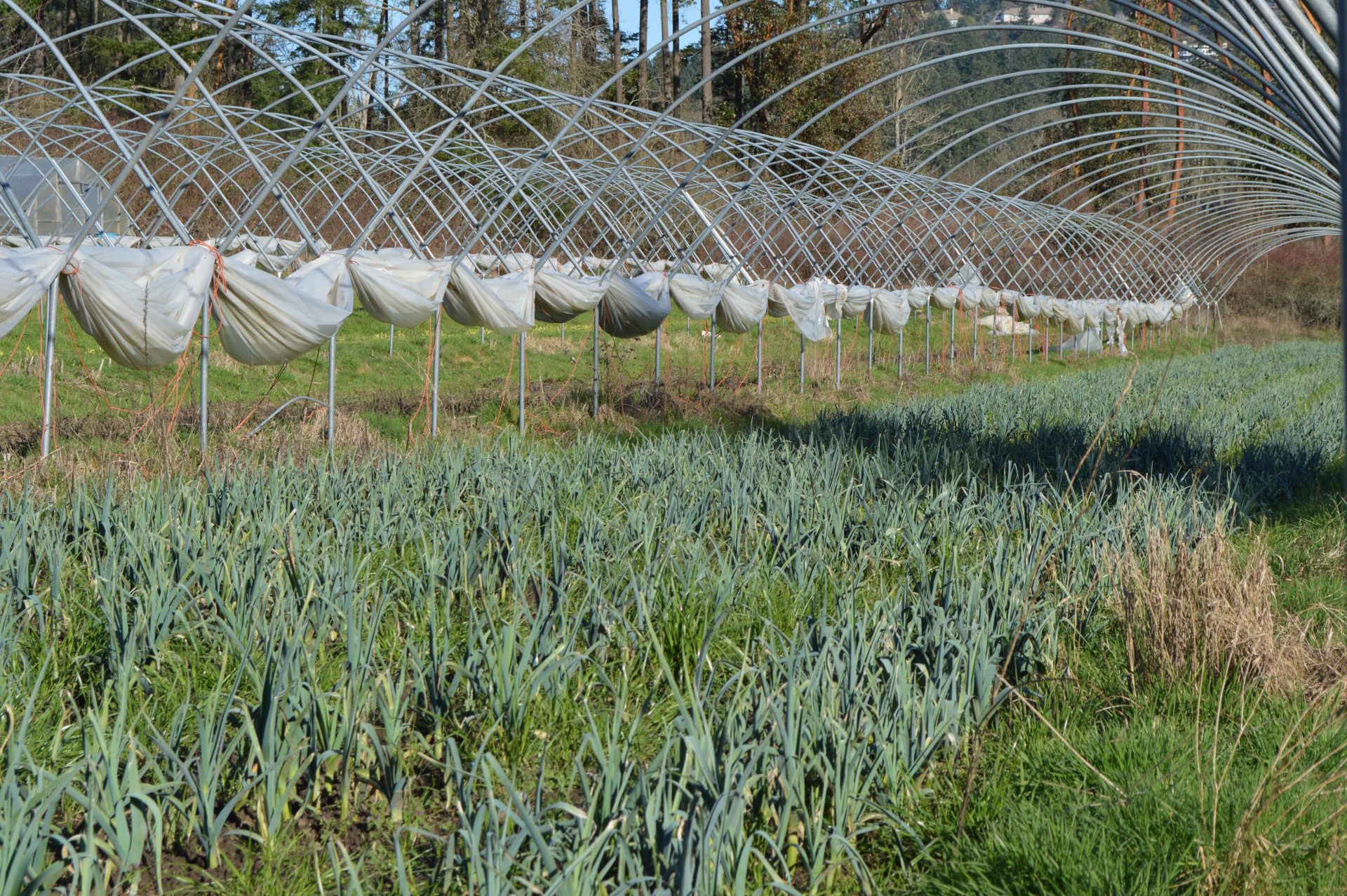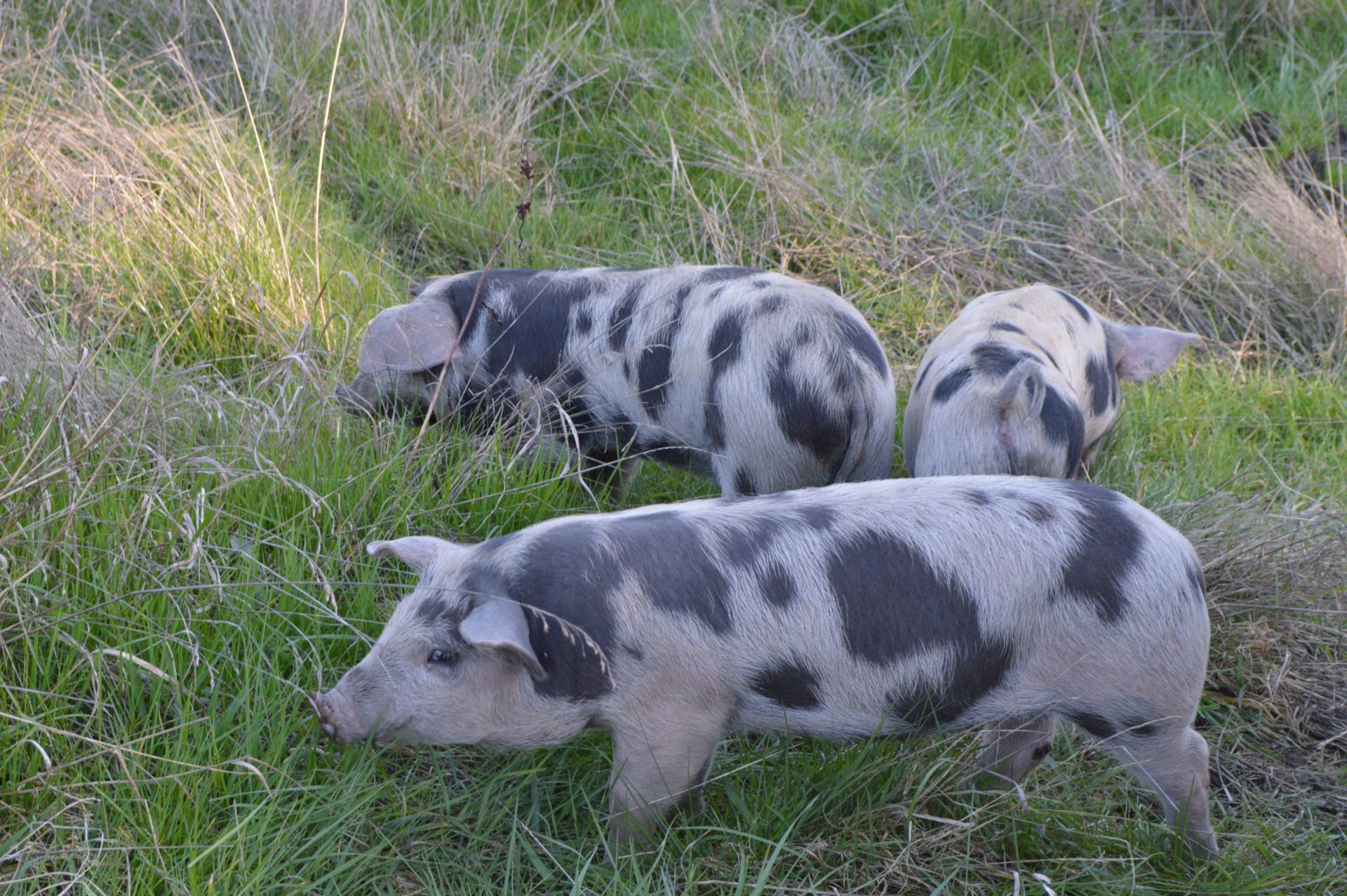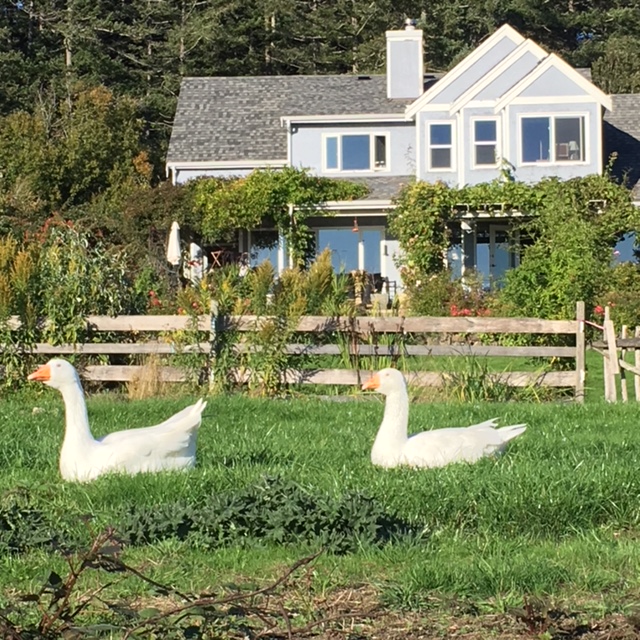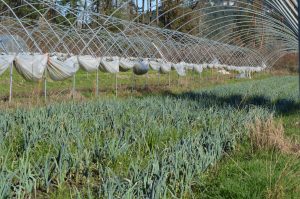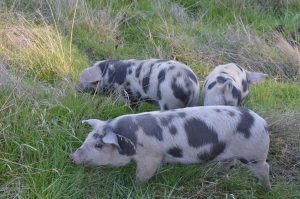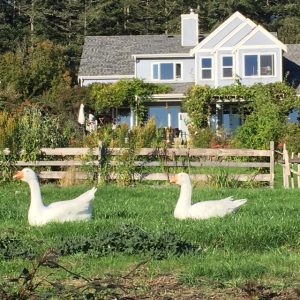Organic farming promotes the sustainable health and productivity of the ecosystem – soil, plants, animals and people. Organic foods are farmed in an environmentally sustainable and socially responsible way, focusing on soil regeneration, water conservation and animal welfare.
COABC What it’s not…
Most people think of organic farming in terms of what is NOT allowed:
* Produce and grains are grown without synthetic pesticides, herbicides, fertilizers or GMOs (genetically modified organisms)
* Animals are never fed the by-products of other animals, and are not kept constantly caged indoors, without access to fresh air, or opportunities to socialize with other animals
* Processed organic foods do not contain chemical preservatives or synthetic additives like colourings and waxes
COABC There are more “do’s” than “don’ts”.
But the fact is, simply removing agri-chemicals is not enough to turn a conventional farm into an organic farm. Organic farming is an active, labour-intensive process.
For example, organic farmers use quality compost, cover crops (such as nitrogen-rich alfalfa) and crop rotation to nourish soil naturally, and to allow it to rest and regenerate. Plants grown in healthy soil are better able to feed and protect themselves from pests and disease, which means they won’t require heavy applications of fertilizers and pesticides. The expression, “Feed the soil, not the plant” is a familiar refrain among organic farmers.
Organic farmers are also careful about how they store and compost animal wastes, in order to safeguard air and water systems. They tailor their crops according to climate and soil, to optimise the natural growth cycle. Organic farmers also promote biodiversity, by growing a variety of crops, rather than one single crop. Through all of these methods, organic farmers prevent soil erosion, conserve energy, and help protect local wildlife, stream banks and watersheds. They help protect the global environment, as well: organic farming can greatly reduce the amount of greenhouse gases, such as carbon dioxide, that contribute to global warming. Click here to read a global report on The Role of Organic Agriculture in Mitigating Climate Change. Organic farming helps prevent topsoil erosion, improves soil fertility, protects groundwater and conserves energy.
COABC Animal-friendly farming.
Organic farming promotes the humane treatment of animals. Organically-raised poultry, cattle and other animals are fed a certified organic diet, free of hormones, GMOs (genetically modified organisms) or animal by-products. Rather than relying on antibiotics to reduce disease, organic farmers prevent disease by ensuring that animals have a healthy lifestyle, with lots of pasture, comfortable and spacious shelter, and opportunity for natural socialization. The result? Some certified organic milk cows have a life expectancy three or four times that of their commercial counterparts!
COABC Organic Farming in BC
BC has emerged as a leader in organic farming in Canada, with the greatest number of organic farms growing both fruit and vegetables. As of 2003, 21,735 acres of land in BC were being managed organically, with another 5,686 acres in transition. Women are particularly drawn to organic farming, with 40% of organic operators being female (compared to 36% of conventional farm operators).
And over half of BC consumers are buying organic. A 2003 opinion survey commissioned from Synovate Research for the COABC showed that 53% of British Columbians now purchase organic food at least occasionally. The majority of organic shoppers purchase their organic foods at mainstream grocery stores, although farmer’s markets and other direct-to-consumer sales continue to be important sources for regular, frequent organic consumers.
COABC The History of Organic Farming
There is nothing ‘trendy’ or new about organic farming: it is the way we produced our food for thousands of years, until the very recent arrival of synthetic fertilizers and agri-chemicals in the last century. During World War II, in fact, two chemicals used in warfare – DDT and ammonium nitrate – were found to have agricultural uses, and became widely used as sources of cheap pesticides and fertilizer, respectively. At that time, farms became increasingly dependent on hybrid plants, mono-culture crops, large-scale irrigation, and heavy mechanization.
But as industrial-scaled, chemically-dependent farming grew, so did its critics. In fact, as early as 1920, critics of large-scale industrial farming emerged in England, and later in the US and Japan. The term “organic” began to be used more widely in the US in the 1950s by the founder of Rodale Press, J.I. Rodale. In Canada, the Canadian Organic Soil Association (later re-named the Land Fellowship) was formed in 1953, by filmmaker and popular educator Christopher Chapman. He produced two influential Canadian documentaries, Understanding the Living Soil and A Sense of Humus.
The popularity of organic farming principles surged in the late 1960s and 1970s, particularly with the 1962 release of scientist Rachel Carson’s ground-breaking book, Silent Spring, in the US. Soon afterward, the US government banned the use of DDT. Organic principles gained renewed focus within the alternative lifestyles movement, as people sought to reconnect with the land, and promote a more harmonious relationship to nature. Several more organic organizations formed around the world, including in several regions of Canada. By 1972, the International Federation of Organic Agriculture Movements (IFOAM), was established.
The late 1970s and 80s saw the formalization of relationships among organics farmers in countries such as England, France and the US. By the 1990s strong consumer demand for organic produce created the necessary impetus to establish standards for certifying organic foods.
COABC Global Trends Today
Today, organic farming is practiced in almost every country in the world. According to the 2004 report of the International Federation of Organic Agriculture Movements, more than 24 million hectares of agricultural land are now managed organically across the globe, particularly in Europe, Australia and North America. In 2002, the global market was estimated to be worth $23 billion USD. Recently, growth in the organic food sector has been highest in North America, and particularly in Canada. Agriculture Canada estimates that sales of organic products in Canada will continue to rise 20% a year until 2005. Currently, up to 80% of organic goods sold in Canada are imported.
Source: Certified Organic Associations of British Columbia
Recent Photos
Recent Blog Entries
